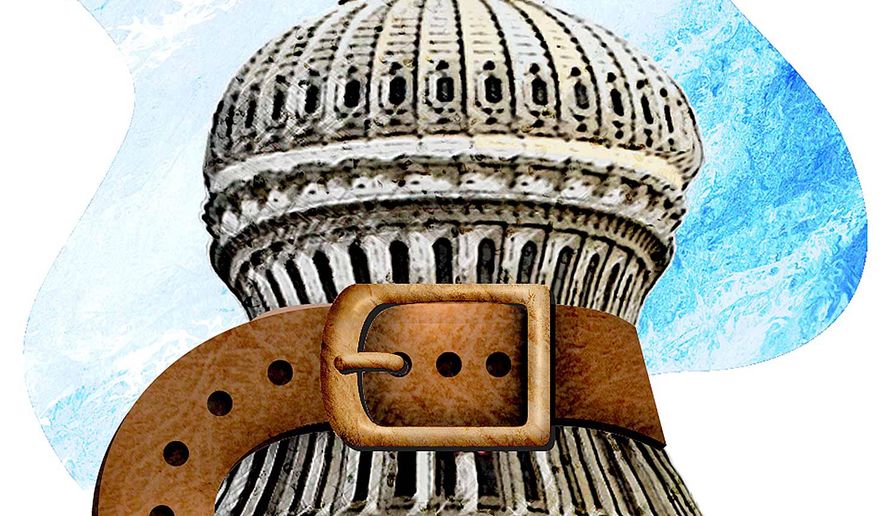What is Limited Government
Limited government is a political philosophy where the powers and functions of government are restricted by law, usually through a constitution. This concept aims to protect individual liberties and prevent the government from becoming too powerful or authoritarian. In a limited government, laws and institutional checks and balances (such as separation of powers among different branches of government) ensure that the government’s role is constrained, typically focusing on protecting citizens’ rights, maintaining order, and providing essential public services.
The principle of limited government is fundamental to many democratic systems, where the rule of law prevails, and individual freedoms are safeguarded.
Historical Background
The idea of limited government isn’t new. It has roots in ancient civilizations and was significantly shaped by key philosophers during the Enlightenment. Thinkers like John Locke and Montesquieu were instrumental in advocating for a system where the powers of government are confined by law. Locke’s theory of natural rights and Montesquieu’s principle of the separation of powers laid the groundwork for modern democratic societies. Don’t Miss to Check Out Our Website: Webs Universe
Core Principles of Limited Government

Rule of Law
The rule of law is a cornerstone of limited government. It means that everyone, including government officials, is subject to the law. This ensures fairness and accountability, preventing arbitrary use of power.
Separation of Powers
To avoid the concentration of power, limited governments often implement a separation of powers among different branches—typically the executive, legislative, and judicial branches. This system ensures that no single entity can dominate the governance process.
Checks and Balances
Complementing the separation of powers, checks and balances allow each branch to monitor and limit the actions of the others. This mutual oversight helps to prevent abuse of power and maintain a balanced government.
Individual Rights
Limited government prioritizes the protection of individual rights, often enshrined in a constitution or similar legal document. These rights include freedom of speech, religion, and the press, as well as the right to privacy and fair trial.
Limited Government in the United States
The United States offers a prime example of limited government in action. The U.S. Constitution establishes a framework that limits governmental powers through federalism, the Bill of Rights, and a system of checks and balances. Federalism divides power between national and state governments, while the Bill of Rights explicitly enumerates individual freedoms.
Limited Government Around the World
Many countries have adopted the principles of limited government, each tailoring the concept to their unique historical and cultural contexts. For instance, the United Kingdom operates under a constitutional monarchy with a strong emphasis on parliamentary sovereignty and rule of law. In contrast, Switzerland’s system of direct democracy allows citizens to have a more hands-on role in governance.
Benefits of Limited Government
Protection of Individual Freedoms
One of the most significant advantages of limited government is the safeguarding of personal liberties. By restricting governmental power, individuals are free to express themselves, pursue their interests, and live without fear of unjust interference.
Prevention of Tyranny
A limited government is less likely to devolve into tyranny because of its inherent checks and balances. By dividing power and instituting legal constraints, the system discourages the emergence of autocratic rulers.
Encouragement of Economic Freedom
Limited governments often create environments conducive to economic growth by protecting property rights and reducing regulatory burdens. This economic freedom can lead to innovation, entrepreneurship, and overall prosperity.
Challenges and Criticisms
Despite its many benefits, implementing a limited government is not without challenges. Balancing security and freedom can be particularly difficult, especially in times of crisis. Critics also argue that too many constraints can hinder effective governance, leading to inefficiencies and gridlock.
Modern Examples of Limited Government
Countries like Canada, Australia, and the Scandinavian nations exemplify successful limited governments. They combine robust legal frameworks with democratic principles, resulting in stable, prosperous societies. These nations demonstrate that while the specifics may vary, the core principles of limited government remain effective.
Limited Government vs. Unlimited Government
The contrast between limited and unlimited government is stark. In unlimited governments, power is centralized, often leading to authoritarian rule. While such systems can be efficient, they risk human rights abuses and corruption. On the other hand, limited governments emphasize legal constraints and individual rights, fostering more democratic and just societies.
The Role of Citizens in a Limited Government
Citizens play a vital role in maintaining limited government. Civic responsibility, such as voting and participating in public discourse, is crucial. By staying informed and holding leaders accountable, citizens ensure that government power remains checked and balanced.
Impact of Limited Government on Society
The influence of limited government extends beyond politics. Socially, it fosters a culture of liberty and respect for individual rights. Economically, it encourages innovation and competition, leading to a dynamic and resilient economy.
Future of Limited Government
As the world evolves, so too will the concept of limited government. Emerging trends suggest a need for reforms to address contemporary issues like digital privacy and global security. However, the fundamental principles of limiting governmental power to protect individual freedoms are likely to remain relevant.
Misconceptions About Limited Government
There are several misconceptions about limited government, such as the belief that it means weak governance. In reality, limited government seeks to create a strong but constrained system where power is exercised within defined boundaries, ensuring both efficiency and accountability.

Famous Quotes on Limited Government
Here are some inspirational quotes from historical figures that encapsulate the essence of limited government:
- “The government is best which governs least.” – Henry David Thoreau
- “The Constitution is not an instrument for the government to restrain the people, it is an instrument for the people to restrain the government.” – Patrick Henry
- “Liberty cannot be preserved without a general knowledge among the people.” – John Adams
Conclusion
In conclusion, limited government is a fundamental principle that promotes liberty, prevents tyranny, and encourages economic freedom. By understanding its history, principles, and benefits, we can appreciate the importance of maintaining such a system. As citizens, it is our duty to support and uphold these values, ensuring a balanced and just society for future generations.
FAQs
- What are the main characteristics of a limited government?
- Limited government is characterized by the rule of law, separation of powers, checks and balances, and the protection of individual rights.
- How does limited government protect individual rights?
- By imposing legal restrictions on government actions and ensuring that all individuals are subject to the same laws, limited government safeguards personal freedoms and prevents arbitrary interference.
- Can limited government be effectively implemented in any country?
- While the core principles of limited government are universally applicable, successful implementation depends on a country’s unique historical, cultural, and political context.
- What are some famous examples of limited governments in history?
- The United States, the United Kingdom, and Switzerland are notable examples of countries with successful limited governments.
- How can citizens help to support and maintain a limited government?
- Citizens can support limited government by staying informed, participating in elections, engaging in public discourse, and holding government officials accountable.











